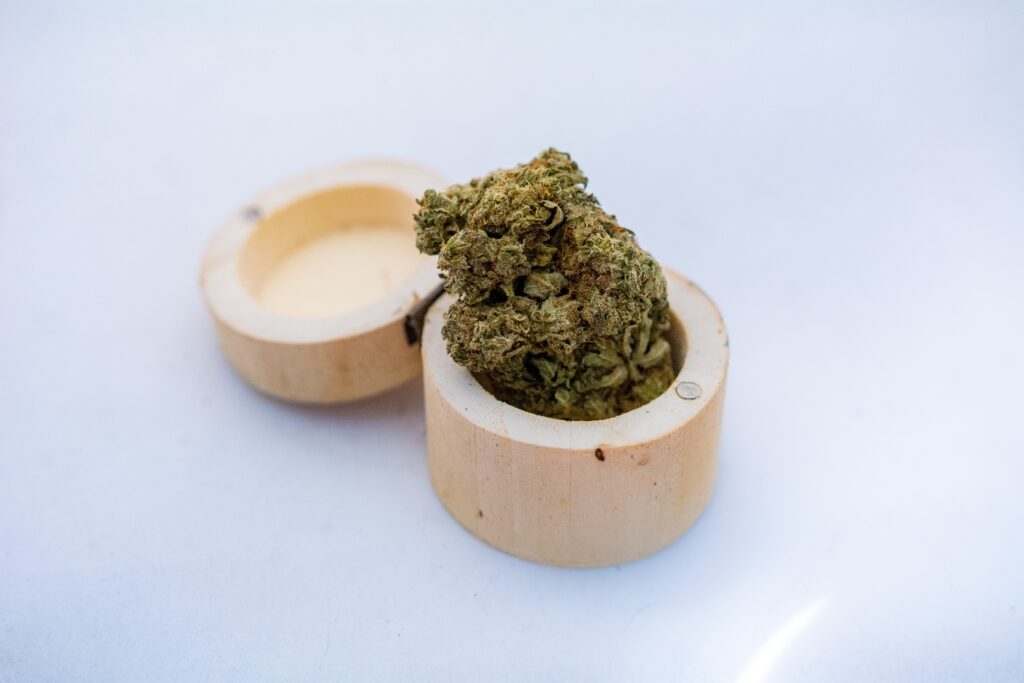Since the opioid epidemic and concerns surrounding long-term prescription pain medication usage have worsened, alternative methods of pain management have come under increased scrutiny. One such natural alternative that has recently gained attention is THCA flower, an extract of the cannabis plant that does not produce its characteristic “high” but instead offers natural pain relief without producing psychotropic effects. This article investigates this natural approach by exploring its mechanism of action, benefits, and any possible drawbacks or downsides of use.

THCA: An Introduction
THC’s precursor, THCA, exists naturally within raw cannabis plants before decarboxylation takes place – this process removes a carboxyl group to transform THCA into THC. THCA does not cause psychoactivity like THC does and offers pain relief without intoxication effects associated with cannabis use – thus making it an attractive option for individuals looking for pain relief without THC intoxication effects.
Benefits of THCA for Pain Management
Anti-Inflammatory Properties: Chronic pain can often be tied to inflammation in an affected area. THCA has shown promise as an anti-inflammatory agent, offering potential relief by directly targeting inflammation. Thus relieving chronic discomfort.
Analgesic Effects of THCA: THCA may help directly modify pain perception via its interaction with CB1 receptors in the central nervous system.
Muscle Relaxation: Pain often involves muscle tension. Some users report that the THCA flower helps relax muscles, easing tension-related pain and discomfort.
Minimal Side Effects: One of the notable advantages of THCA flower is its limited psychoactive potential compared to THC. Users can now experience pain relief without experiencing the side effects associated with becoming “high.”
Non-Addictive: Contrary to opioids, which may become highly addictive, THCA does not present the same risk of dependence.
Methods of Consumption
THCA flower can be consumed in various ways, allowing individuals to choose the method that best suits their preferences and needs. Some common methods include:
Smoking: Smoking THCA flower in a joint, pipe, or vaporizer allows for a quick onset of effects, making it a popular choice for immediate pain relief.
Sublingual Administration: Some users place THCA tinctures or concentrates under their tongue for fast absorption into the bloodstream.
Edibles: THCA can be infused into various edible products, such as gummies or capsules, providing a longer-lasting and milder effect.
Topical Applications: THCA-infused creams, balms, and salves can be applied directly to the skin, targeting localized pain and inflammation.
Suppositories: For those who prefer a rectal administration route, THCA suppositories are available and can offer effective pain relief.
Considerations and Precautions
While THCA flower shows promise in pain management, there are several important considerations to keep in mind:
Legal Status of THC A flower: Legality varies based on your location. Therefore, you must remain up-to-date on local laws regarding cannabis-derived products in terms of possession and usage.
Dosage: Finding an optimal dosage for THCA may be challenging as individual reactions vary widely. To minimize potential side effects and ensure safe treatment, starting slowly may be beneficial in terms of dosage management.
Seek Advice From Healthcare Providers: People with existing medical conditions or taking other medications could benefit from consulting their healthcare provider before adding THCA as part of their pain management regimen.
Potential Side Effects of THCA: Although most individuals tolerate taking THCA without issue, some individuals may experience side effects like dry mouth, dizziness and mild euphoria from taking it.
Conclusion
THCA flower may provide an effective method of pain management without the psychoactive side effects associated with cannabis use. While research on THCA remains ongoing, anecdotal evidence and preliminary studies indicate it could be an effective choice for chronic pain management, inflammation, and muscle tension relief. As with any therapeutic approach, using THCA flowers requires caution – consult healthcare providers first as well as legal requirements in your region to ensure safe and effective pain relief.

